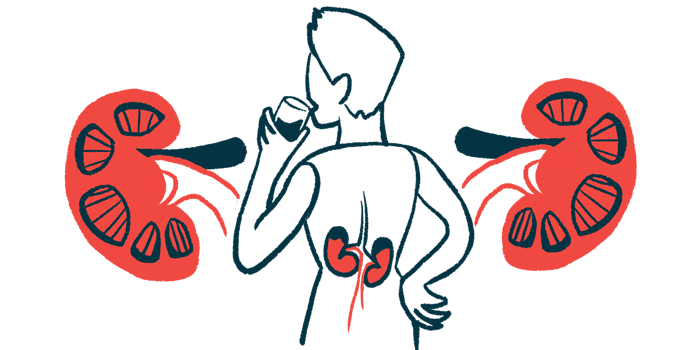Soliris boosts kidney disease-free survival in aHUS patients: Real-world study
Treatment aided ESKD five-year free survival rate by almost 5 times in study
Written by |

Soliris (eculizumab) was effective in enhancing kidney disease-free survival in patients with atypical hemolytic uremic syndrome (aHUS), a real-world study reported.
Specifically, data showed Soliris was able to increase patients’ five-year survival rate without signs of kidney disease by nearly five times. According to authors, this was the first study to demonstrate such benefits in a matched group of treated and untreated patients with genetically confirmed aHUS.
The study, “Atypical haemolytic uraemic syndrome in the era of terminal complement inhibition – An observational cohort study,” was published in the journal Blood.
aHUS is caused by the abnormal activation of a part of the immune system called the complement cascade, which leads to inflammation and blood clotting in small blood vessels, especially those in the kidneys. Many aHUS patients develop end-stage kidney disease, which occurs when the kidneys are no longer able to function normally.
In the majority of cases, aHUS patients carry mutations in genes that encode proteins that regulate the function of the complement system, or have self-targeting antibodies that block the activity of these proteins. However, the presence of these mutations alone is usually not enough for the disease to develop; typically an event trigger, such as an infection, is also required.
Soliris, a complement inhibitor developed by Alexion, now part of AstraZeneca, is considered a main treatment for aHUS associated with mutations in complement genes.
Comparing survival outcomes of untreated, Soliris-treated aHUS patients
Here, a team led by researchers in the U.K. reported data from an observational real-world study that assessed and compared the survival outcomes of untreated and Soliris-treated aHUS patients.
The study included a total of 522 individuals who had been referred to the National Renal Complement Therapeutics Centre for suspected aHUS. From these, 243 received treatment with Soliris, while the remaining 279 in the control group did not.
The control group included patients carrying a genetic mutation linked to aHUS, or those testing positive for self-targeting antibodies against complement regulatory proteins; the Soliris group included individuals thought to have aHUS who were given the therapy due to kidney disease.
Patients were followed for a median of 4.2 years.
The study’s main goal was to assess and compare patients’ five-year survival rate without end-stage kidney disease (ESKD).
Tests confirmed the presence of a complement gene mutation and/or self-targeting antibodies in all participants, except in 42% of those in the Soliris group. A disease trigger event, most commonly an infection (16%) and pregnancy (10%), was identified in 31% of the patients in the Soliris group.
Analyses showed that after five years, significantly more patients in the Soliris group were free of ESKD when compared with the control group (85.5% vs. 39.5%). This meant that Soliris boosted ESKD five-year free survival rate by 4.95 times.
Those who started experiencing the first symptoms of aHUS during adulthood fared worse than those whose symptoms first manifested during childhood.
The prognosis of patients in both groups also varied according to the type of mutation they carried. For instance, fewer patients with a mutation in the CFH gene attained the goal of living for five years without ESKD, compared with those with a mutation in the CD46 gene.
Factors for better response to Soliris found
A statistical analysis also identified several factors that correlated with a better response to Soliris in regards to achieving a status of ESKD-free survival at six months. These included having low levels of creatinine, a marker of kidney dysfunction; low platelet counts; low blood pressure; and a younger age at symptom onset.
During the study, 145 patients discontinued Soliris. In 29 cases, treatment was halted due to lack of kidney recovery. Soliris was also restarted in six patients in whom it had previously been stopped, with no individual progressing to ESKD.
Three patients in the Soliris group had a meningococcal infection, but all survived without significant adverse effects.
“In this national observational cohort study, we report a significant improvement in five-year ESKD free survival in individuals with [complement-mediated aHUS] treated with eculizumab compared with those who were not,” the researchers wrote.
The team also noted, however, that “given the observational study design these findings should be considered preliminary.”






